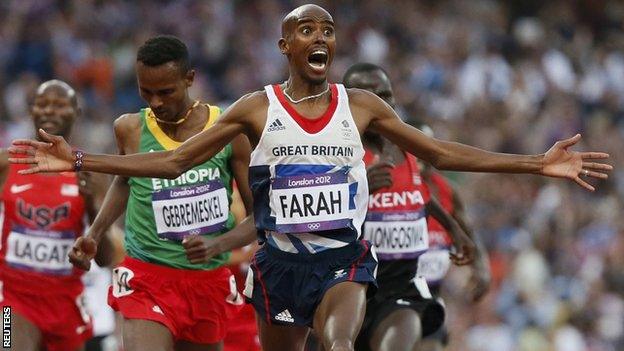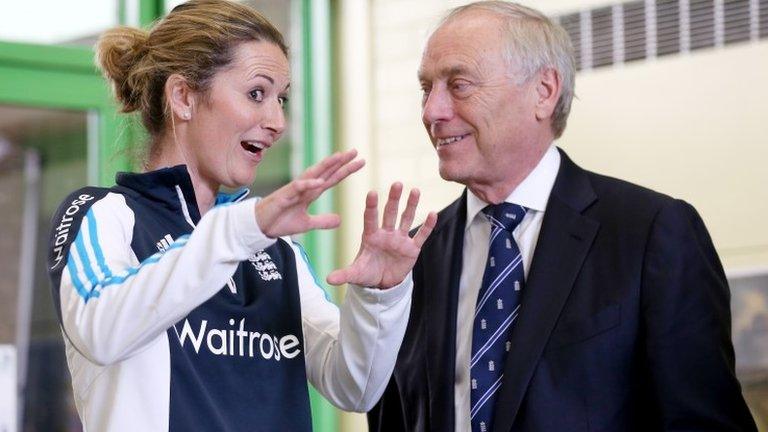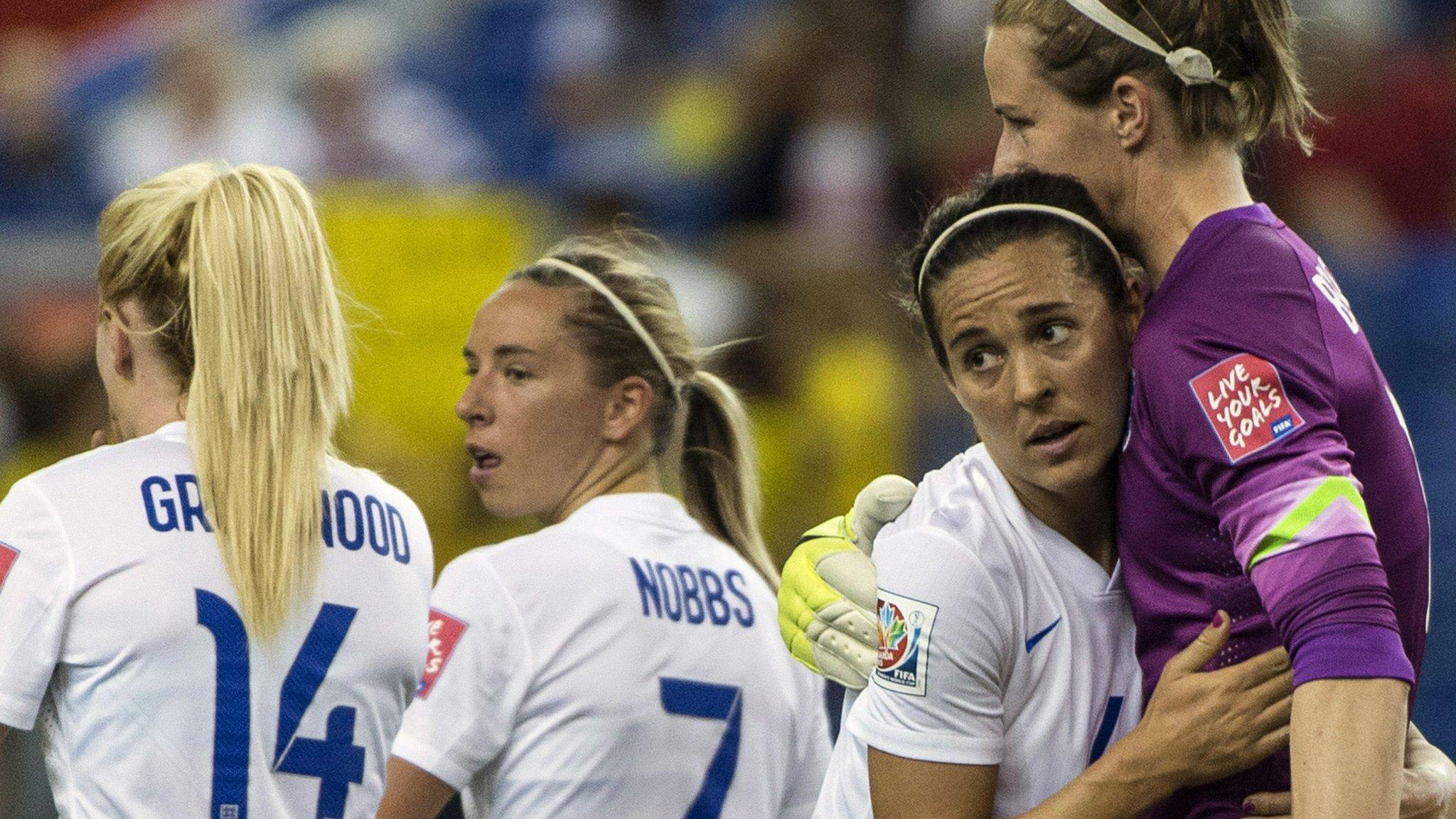Mo Farah: Missed drugs tests do not mean doping - Sotherton
- Published

Double Olympic gold medallist Mo Farah is currently training in France
Former Olympic heptathlete Kelly Sotherton says one missed drugs test "doesn't mean you are doping".
She also understands why athletes get into trouble because "sometimes your mind isn't 100% as all you're thinking about is training".
According to the Daily Mail,, external Mo Farah missed two tests before winning double Olympic gold for Britain in 2012.
The Mail says the second one came at Farah's home in February 2011, when he claimed not to have heard the doorbell.
Nine UK athletes missed two tests in the same year as Farah did.
Yet UK Anti-Doping chief executive Nicole Sapstead told BBC Sport that it is "not common" for an athlete to miss a test.
More from BBC Sport |
|---|
Farah's gold medals in the 5,000m and 10,000m at London 2012 were among the defining moments of the Games.
At the time, UK Anti-Doping rules stated that an athlete who missed three tests in any 18-month period could face a ban of up to two years.
That meant Farah could have been ruled out of his home Olympics with one more breach of the regulations.
The rules have since been amended and athletes who now miss three tests in a 12-month period can be banned for four years.
Sotherton said top-level athletes are tested up to 20 times a year and have to know three months in advance where they are going to be.
"You are never free of drug testing," said the 38-year-old, who won Olympic bronze at the 2004 Games in Athens.
Analysis: Dan Roan, BBC sports editor | |
|---|---|
"Anti-doping regulations state athletes must give details of where they will be for one hour every day. But inevitably, on occasions, they're not at home when the testers come calling. We know that in 2011, around the time this story relates to, nine UK athletes missed two tests. But that number can change. In 2014 it was only one, so it's not common but it's not unheard of either. But the ramifications of missing a third test can be very serious." |
"I've been tested nine times in six weeks before - at my house, at the track, at my partner's house.
"But a missed test doesn't mean you are doping. It may mean you have been a little bit careless. That doesn't make you a drugs cheat.
"I was very organised and I made a slip of a number by one day. That's how a missed test can happen."
Sotherton's sentiments were echoed by Jenny Meadows.
"It is very difficult to work out where you are going to be three months in advance," said the former European indoor 800m champion.
"You do have to remember, of course, where you said you would be and make sure you are at that place. Even this week I was out of the house before my testing slot should have started."
While European and Commonwealth 800m silver medallist Lynsey Sharp spent one hour every day for two weeks sat in a Boston cafe while on holiday because the doorbell did not work in her rented apartment.
"There is not a lot of room for mistakes," said Sharp. "I do think we have great system but it can make it difficult for athletes."
Michael Rimmer, who won an 800m silver medal at the 2010 European Championships, said he had missed tests in the past and has suggested athletes are tagged so the testers know where they are at all times.
But Michele Verroken, a sports ethics and anti-doping adviser, said there had to be "an element of surprise" to testing.
Analysis: Tom Fordyce, BBC chief sports writer | |
|---|---|
"In 2011, I signed up to UK Anti-Doping's whereabouts system. In the six weeks I was on it, I almost missed one random test, having slept through an early-morning doorbell, and forgot to update my whereabouts on another key occasion. Maybe, with time, it would have become second nature. Had it been my livelihood it arguably should have done. Maybe, with time, I would have been less focused and made more mistakes." |
"There is no obligation on the testing agency to test you in just that hour because athletes would manipulate the system and provide you with a clean sample," she said.
Christine Ohuruogu, who won 400m gold at the 2012 Olympics, was given a one-year ban, external in 2006 for missing three out-of-competition tests.
The independent disciplinary committee which heard the Briton's case admitted it was a "harsh sanction" for someone who had "no intention of infringing anti-doping rules".
The ban was described as a "much-needed wake-up call for athletes" by John Scott, who was UK Sport director of drug-free sport.
Sapstead believes that UK athletes are "incredibly supportive of the whereabouts system" despite the requirements placed on them.
She claims athletes understand that it protects them and their sport.
- Published18 June 2015
- Published18 June 2015

- Published18 June 2015

- Published18 June 2015

- Published10 September 2015
